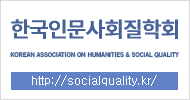ISSN : 2586-2987(Print)
ISSN : (Online)
ISSN : (Online)
Korean Journal of Social Quality Vol.4 No.2 pp.19-45
DOI : https://doi.org/10.29398/KJSQ.2020.4.2.19
DOI : https://doi.org/10.29398/KJSQ.2020.4.2.19
A Study on the Hikikomori Support System in Japan and Its Implication for Korea
Abstract
The purpose of this study was to examine the Hikikomori support system in Japan and explore its implications for Korea. Japan experienced a rapid growth in the 1970s and an economic downturn in the 1990s, and in the aftermath of these two events, has a painful thorn called Hikikomori as a social problem now. They have problems such as the “8050 problem,” a problem, unique to Japan and related to the special forms of family composition, and aging and prolonging problems of Hikikomori. However, finding a solution to these problems seems a daunting task. Nevertheless, the Japanese government is making various efforts to figure out the status of Hikikomori at the national level and find ways to address their problems by developing support policies and improving services. Recently, it has changed the target and method of support. The Japanese government is expanding the scope of Hikikomori support policy, from the “children and youth” or “young people” to the “middle-aged and old people” and changing it from a divided method to a “comprehensive” support system. In addition, it is striving to establish a diverse cooperative system between the public and private sectors, along with a comprehensive support system in various areas such as counseling, welfare, medical, education and employment. Based on this experience of Japan, I organized the implications for Korean society.
일본의 히키코모리 지원체계 고찰과 한국에의 시사점
초록
본 연구는 일본의 히키코모리 지원체계를 살펴보고, 한국에의 시사점을 얻고자 하는데 목적이 있다. 1970년대 고도성장기와 1990년대 경제침체기를 경험한 일본은 그 여파로 히키코모리라는 아픈 가시가 사회문제로 자리잡고 있다. ‘8050문제’와 같은 세계적으로도 특수한 형태의 가족구성과 히키코모리의 고령화, 장기화 문제는 그 해법을 찾기가 쉽지 않아 보인다. 그럼에도 일본 정부는 이를 해결하기 위해 국가적 차원에서 히키코모리 실태를 파악하고, 지원정책 개발과 서비스 개선을 통해 대처방안을 모색 해 왔다. 최근에는 대상과 방식에 변화를 주고 있다. 그간 ‘아동·청소년’ 내지는 ‘청년층’을 중심으로 진 행해왔던 히키코모리 지원정책 대상을 ‘중·고령층’으로 확대하고, 분절된 방식에서 ‘포괄적’ 방식의 지 원시스템으로 바꿔 가는 중이다. 또한 상담·복지·의료·교육·고용 등 다 영역에서의 포괄적 지원시스템 과 더불어 민관의 다양한 협력체계 구축을 위해 노력하고 있는 모습이다. 이러한 일본의 경험을 바탕으 로 한국 사회에 가져다주는 시사점을 제시하였다.









